
Director of Development at a manufacturing company with 51-200 employees
Big Data – Qlikview (Allies or Foes)
“Big Data” as it is generally defined as:
A large voluminous, fast changing, multi-structured dataset, generally distributed in nature, non-EDW compliant (mix of RDBMS/non-RDBMS) dataset
Due to the nature and flow of data, it has associated issues and complexities like performance, governance and analytics etc…
In general discussions, “Big Data” term is generally used analogous to Hadoop infrastructure, but in this discussion, we will assume Big Data as a principle rather than a current technology/solution.
“Qlikview” on other hand, is In-memory Business Intelligence Solution able to handle very large datasets and advocates its user friendliness and intuitiveness, shorter development cycles and analytical capabilities among other things…
Now once, Big Data/Qlikview introduction is clear, let’s see these two bit closely and together
Following charts generally lists 3 aspects of Qlikview/Big Data
|
|
Big Data |
Qlikview |
|
|
Configuration |
Distributed |
It is distributed in nature… |
Traditionally Single instance of Qlikview Application is |
|
Properties |
Volume |
Very large Volume (terabytes or more) |
Large Volume (20-100 of Gigabytes is not unheard of) |
|
Velocity |
Data speed is varied, based on operation… Click Stream data, RFID data is real time |
Data Frequency(speed) is generally mini-batch with small delays |
|
|
Data is generally pre-defined datatype, and most of datasets in general occurrence is Date, text, numbers etc. |
|||
|
Implication |
System |
Generally data is large for a single DB/Filesystem to handle, so data is generally distributed across a number of systems. |
Generally data from multiple datasets, since memory based, it is limited by max memory applicable on server |
|
Data Relationship |
Dataset is traditionally non-EDW (images/videos/blogs/web logs etc) |
Generally a Dimensional model |
|
|
With big data comes, problems like performance, management and analytics. |
In memory solution, allow fast performant reporting and analytics user response |
||
Quite obvious there are number of ways, where the systems are designed differently and surely for different purposes, Does it make Qlikview and Big Data as non-compatible solutions or two applications with own strengths and perfect partners when used in conjunction can deliver solution the business needs?
The answer of this question lies in answering the bigger question… “What does business wants and what does IT have?”
With more and more mountain of information flowing in and new nomenclature becoming more common in regularly use. (Mega/Giga/Tera) being now replaced by (Peta/Exa/Zetta). New technologies and more processing power coming to fore, surely underlining the validity of Moore’s law.
What is more important is not what this data holds, but what useful or relevant information it has and which can be used efficiently. Information is Gold; it has to be treated that way. But while looking at information, we need to understand and look at another analogy, which comes from mining of precious metals. While searching for Gold, it is not like that miners find the strips of Gold and they don’t. It is more likely that Gold may not be visible to naked eye and need sophisticated processes to find and process Gold. A terminology Strip Ratio (1 ppm for Gold) defines amount of waste need to be processed to find area of your interest
So new technologies allow exposure to more and more data with different “strip ratio” and to make it as information, as John mentioned in this article Qlikview and Big Data: It’s all about Relevance. The information is about relevance, having more and more information on users desk or computer, will not make users any more capable and knowledgeable and geared toward making right decisions, but what is needed, an organized, structured view on that information set, where information which is relevant to the user is presented in way, the user can utilize.
Major critics of In-memory based solution generally come out with this argument – “Memory/Hardware/OS Limitation” and hence its (Qlikview) in-ability to handle this Big Data in single application.
Picking the comparison from Big Data itself, technical reasons were governing reason of distributed nature and Architecture of Big Data.
I see no surprise if same principle is applied across BI and Analytics with distributed Apps as answer to it, with Business driving the data distribution split rationale.
As ideally Business doesn’t need a single application, showing them universe of data, but wanted to see the data of their universe in single forum, so on top of well distributed dataset, there can be array of Qlikview apps serving specific business needs or drive.
So revamping some of the definitions:
Hadoop (HDFS) – Data is being global, distributed and varied and large, it is split into multiple subsets, location and copies for multiple usage…
Qlikview (BI) – Information is being global, distributed and varied and large, it is split into multiple apps, location and copies for multiple usage…
The new world order
Disclosure: My company does not have a business relationship with this vendor other than being a customer.
Developer with 51-200 employees
BI Tool Rant: Qlikview Pie Charts
This posting is the first in a subset of posts I plan to make on this site that I can use as my method of stress release in regards to general frustrations with business intelligence tools and all related subject matter. In terms of BI tools I can not say that I align myself to any single software. They all have their own strengths and weaknesses and it’s a combination of that matrix of features (or lack thereof) along with the context of the business implementation that needs to be considered when picking a tool to investment.
That being said let me get back to my rant…
IF YOU LOVE PIE CHARTS DON’T USE QLIKVIEW!
Okay, okay let me elaborate on such a strong claim. On a recent piece of work that I had done for a client they had wanted to utilize a portion of their dashboard with a pie chart that would show the breakdown of possible values for a particular field. The pie chart was actually quite cool to see. It drew the correct relationship. It gave the pie chart one of the 3D angled views. The thing it couldn’t do? It couldn’t label the chart inside the pie slices! I could show percentage breakdowns, counts for each value, and have any dynamic label I wanted AROUND the pie chart – but trying to put the details within the slices cued up the “Impossible Dream.”
So is there a workaround for something that isn’t second nature with the application? Well there is a solution per say. Option A would be to possibly add a text label within the chart and try to position it within the slice. Each text label would show the percentage for a certain value. The issue is that as your pie chart changes there wouldn’t be a guarantee that your static label would be sitting in the correct spot. Option B would be to use some kind of macro or javascript plugin that would relocate the label – but now you’ve added custom macro codings for a LABEL. *Insert a headshake here*
Qlikview has a lot of power behind its engine and can offer many ways to illustrate your data. The warning is to do a bit of research and try to browse through different Qlikview demos to see the strongest visualizations. Or hire a web developer.
Disclosure: My company does not have a business relationship with this vendor other than being a customer.
Buyer's Guide
QlikView
December 2025
Learn what your peers think about QlikView. Get advice and tips from experienced pros sharing their opinions. Updated: December 2025.
879,455 professionals have used our research since 2012.
Consultant at a consultancy with 51-200 employees
Managing QlikView Server Without a Publisher
I have many clients who are using QlikView Small Business Edition or Enterprise Edition without Publisher. I'd love for them to add Publisher because I HATE HATE HATE managing file permissions in windows. I love that publisher automatically distributes QlikView documents to the User Documents folder and I can easily change who will receive each file right from the Management Console AND I don't have to remote into the server to do it
Ok, time to end this publisher love-fest and time to get down to the business of designing our security environment when you don't have publisher. I'm writing this post because I spent a good chunk of the other day fixing a problem we had that was caused by a goofed up security configuration(This is called learning from experience because I goofed it up). So after banging my head on the wall trying to figure it out I thought it would be a good idea to share with the interweb.
Here is my use case...
I work for a company who has 25 Named user CALS and 100 Document CALS(Probably not an important detail) There are several departments using QlikView Dashboards Each department includes sensitive data in their Dashboards so they must remain private to the department. There is also a Corporate Dashboard used by the C Suite and the CEO often uses the department dashboards to explore information about some key clients.
Our data is built by first extracting data from the source databases into QVD files. Dimensions are conformed and key fact tables are also built in QVD format. The Conformed Dimensions and Facts are combined into data models based on user requirements and finally the data models are binary loaded into the user applications and presented on Access Point.

A three tier data flow model provides the framework needed to present clear and consistent data to all your applications.
So let's start planning. We want to set up a folder structure to use in our Small Business Edition server to manage user access to their documents, and provide organization for our ETL framework, remember we don't have publisher. Obviously we can get very complicated with this but for the sake of explanation I'm going to make a single directory our starting point, I'll call it "QlikWarehouse".
Applications The Applications folder contains our user facing QlikView documents I always add one folder for each application and I design my security around those folders. You should create a "QlikView Users" group in active directory and assign read/write access to the Applications folder. Then you will override inheritance for "QlikView Users" on the application specific directories and grant read/write access to a group that corresponds to the folder for that application. In the QEMC you will set the Applications folder as the "Root" folder, when you do this the QlikView Server will add several files in the Applications folder, if your users do not have read/write access to these files then they will see login failure errors and you'll get to bang your head on the wall to figure out the problem.
Load Scripts Load scripts is added to the QlikView environment as a mapped meta folder. Mapping it into the QEMC will allow you to set the reload schedule for your data. It is essential that your users do not have access to this folder. If they do you will be exposing documents to the users that will not have any data in them and probably cause nothing but confusion for your users.
Data
Most of the files in the data directory will be QVD files but you must map it because the data model files will live in here but just like the load scripts your users should not have access to this directory.

Active Directory security settings needed to manage your QlikView SBE deployment.
Following this kind of configuration will allow you a couple of advantages.
Management Got a new Application? Create an AD group to go along with it and make it a member of Qlikview Users.
Simplicity Users only see the applications that they have access to, period.
Compatibility This structure is compatible with publisher so if you do decide to expand your Qlikview footprint you'll be ready to go. It won't be a turnkey deployment but this structure is close enough to adapt to the Source Docs/User Docs division in publisher.
I'd like to encourage comments since this is just what I've been doing when I deploy a server, any suggestions, criticism or praise(especially praise) is welcome.
A quick note on the images in this post, I would like to give credit where it is due. Many of the individual icons have been clipped from various presentations I have received from Qliktech however the overall diagrams are my creation(even if not terribly creative).
Disclosure: My company does not have a business relationship with this vendor other than being a customer.
Consultant at a tech consulting company with 51-200 employees
QlikView Enterprise Deployment
PART 1
---------
QlikView is a great business discovery tool that can easily generate excitement among business users. However, to build out a QlikView system that can support tens, hundreds, or even thousands of users is no easy task. As a QlikView consultant I have seen these scenarios many times:
- A business analyst is eagerly showing an IT manager the beautiful dashboards he/she builds in QlikView, and can’t wait to show the dashboards to hundreds of internal and external users;
- A business executive wants all business users to self-service their information needs through a QlikView platform.
Often times the IT managers seem to be less excited than their business counterparts. To be fair, in order to build a solid system, IT managers have a lot of questions that need to be answered. Let’s take a look at the most commonly seen ones (I have to warn you it’s a bit technical).
-- VMware for the servers? --
Nowadays most IT infrastructure professionals are in love with Virtual Machines (VMs). With its lower cost and flexibility in terms of horse power, VM seems to be the way to go for all enterprise applications. Well this is almost true for QlikView. All components of QlikView services can work fairly well on VM except for QlikView Server. This is because QlikView Server does the heavy lifting in-memory data processing, and the extra VM layer is going to slow it down, a lot. Most seasoned QlikView consultants would recommend at least using a physical machine for the production QlikView server.
-- Separate Publisher from Server? --
The two most important components in a QlikView system are the QlikView Server and Publisher (aka Distribution Service, I am a QlikView veteran so I will stick to the old name). Most people install all components on the same machine but as your data volume and user base grow, people frequently see these two components getting in the way of each other. At this point, it might be a good idea to put Publisher on a second machine (by the way, that second machine could be a VM). The good news is you can still manage both the QlikView Server and Publisher from a single QlikView Management Console (QMC).
-- QlikView Web Server or IIS? --
QlikView comes with its own web server, which is a light version of Microsoft Internet Information Service (IIS). In a perfect world, where all users are Active Directory users, and the number of users is small, QlikView’s web server works pretty well. For a large user base deployment you might want to choose to use IIS because it’s more scalable. IIS also gives you more security options.
-- Security Integration --
Security is always a big issue in an enterprise. Typically security includes authentication, which is about making sure a user is who he/she claims to be, and authorization, which is about letting the user see only what he/she is allowed to see. In the real world, we often see QlikView Publisher and Section Access can handle authorization pretty well, while the authentication is a bit more complex. This is because QlikView does not do authentication itself, it always relies on third-party authentication like NTLM, SiteMinder, WebSeal, etc. This process is also known as Single-Sign-On (SSO). This normally plays well in an enterprise because usually there is already a standard authentication product in place. The good news is, if the existing standard authentication product happens to be NTLM/Active Directory, QlikView can work with it out-of-box with no additional configuration. Otherwise, the third-party authentication product needs to inject the user id into http header and QlikView needs to be configured to read user id from http header. If the QlikView Servers are also accessed by outside people, it might be a good idea to setup a reverse proxy.
I hope by now you get a sense of the extra “behind the scenes” efforts that are necessary to make your QlikView system successful. In my follow up blog, I am going to talk more on topics such as high availability, storage, and running load tests.
PART 2
---------
In my last “QlikView Enterprise Deployment” article, I discussed VMware, the benefits of separating Publisher from QlikView Server, the choice of QlikView web server vs IIS, and security. However, there is more to consider in making your system solid.
-- High Availability --
The QlikView deployment has been so successful, people cannot live without it anymore. All of a sudden IT’s are victims of their own success. People are demanding high availability and high performance of the QlikView system, which of course will make the system more complicated. QlikView Servers need to be put on more than one machine, and a load balancer needs to be put in front of these machines. QlikView Servers also need to be clustered. By doing this, if one server is down the load balancer will stop sending users to this server. Users also enjoy a better response time because they are spread across multiple QlikView Servers.
The same concept also applies to Publisher. I have seen customers trying to get many dashboards refreshed (e.g., month-end or quarter-end) in a short timeframe. It might be a good idea to also install Publisher on multiple machines and cluster them. If one Publisher goes down, QMC will wait for it to be back to normal before sending data refreshing tasks to it again. In the meantime, QMC keeps sending tasks to the good Publishers and nothing gets interrupted.
-- Storage --
A lot of QlikView Servers objects (sessions, shared objects, bookmarks, licensing information, etc.) are stored in a set of system files. When QlikView Servers are clustered, both servers read and write from the same set of system files, which can cause contentions. Some people would use one of the QlikView server’s hard disk as the storage for these system files. This is normally fine except that when that server is down, the good servers cannot work either because the storage location is not there anymore. The best configuration we have seen is to use a SAN owned by a third windows server as the storage, and that windows server can be a VM.
-- Load Tests --
Every component of your QlikView system is properly configured and it looks like it’s ready to go. But wait, how can it be sure the system can support the desired user load and data volume? The only way to find out is to run load tests. QlikTech offers a great tool that is based on JMeter and it is relatively easy to setup. The tool can automatically generate JMeter scripts based on specified testing scenarios, and it can simulate any number of concurrent users. The testing results can be loaded into QlikView for analyzing. Of course, if the company has a strong load testing team that uses other tools like LoadRunner, you can also use your own tool to perform a load test.
These are the most common things people consider in an enterprise deployment. I hope you enjoyed reading it as much as I enjoyed writing it.
Disclosure: My company does not have a business relationship with this vendor other than being a customer.
Recruiter with 51-200 employees
Qlikview compared to other BI Tools
Qlikview is one of the older names in Business Intelligence software since it’s been around since 1993. It’s known as being particularly easy to learn, which is important for quickly training employees and getting them up to speed.
Business intelligence tools are applications that deal with Business Objects and that help with analysing and presenting data. For the most part, a BI tool will be working with data that’s already been in-putted into a system, and you’ll simply be using the BI application to work with that particular data set, though there are exceptions. The best business intelligence software for you though will depend on what you need, since there are many pros and cons of various BI programs.
-- Cons --
Qlikview has strong features all around, but there are other clients that tend to be somewhat better when it comes to certain features. For example, Tableau actually has a free reader integrated into it, which makes offline viewing considerably easier than the limited viewing capabilities while offline that Qlikview has.
Qlikview also struggles when it comes to integrating GIS data, which can be pretty important for topographic and geographic analysis and presentation. Other programs having mapping abilities integrated into the client, for example. Qlikview also struggles when it comes to multidimensional support, and support for things like xVelocity or Power Pivot.
While Qlikview excels in ease of use, there are many alternatives out there like Tableau and OLAP that tend to be better at analysing data in a deep and thorough way, and with support for all of the other applications and data sets that you may need.
-- Qlikview Pros --
An advantage of Qlikview is that it takes a very small amount of time to implement. It’s even better at this than other similar software such as Tableau. Another advantage that Qlikview has is that it has a significantly larger Partner Network than many of the alternatives.
Additionally, Qlikview has development scripting that tends to be superior as well. The 64-bit in-memory of Qlikview is among the best of any software BI package period. Qlikview has good interactivity with the UI, solid visual controls, and extensive compatibility with both web clients and especially with mobile clients. Qlikview also has considerably more mature features when it comes to data interactivity and visual drilldown as well. It’s easier to deal with the visualization aspect of the program than almost any of the competitors, including Tableau.
The best feature for Qlikview tends to be the visual drill down which it just does better than any other client. You can hardly go wrong with all of the extras Qlikview like MDI support, as well. The software shines when it comes to ease of use and learning curve. If you need to implement a BI solution fast and without hassle, Qlikview is often the best way to go.
Disclosure: My company does not have a business relationship with this vendor other than being a customer.
Consultant at a tech consulting company with 51-200 employees
What’s So Great About QlikView in the iPad World?
Disclosure: I work for a company that is a partner with QlikView, SAP BusinessObjects and Microsoft.
As a non-Apple using professional (we are becoming less in numbers) I have always leaned further to the Android side of the mobile world. As a QlikView professional, most of my experience is on Windows desktops, laptops and servers and in previous years involved less interaction with what many people believe to be the greatest gadget(s) in the world.
So enter the iPad and QlikView V11.0.11426.0 SR2. Day one, the first step was simple, get to the QlikView Access Point. Open the browser, navigate to my access point and sign in. Outside of the search for the “\” key (domain\userid) that all went well.
The first question you are presented with after getting to the access point is would you like your default in full browser mode or small device mode. iPad is full browser. No question. I’m not a big fan of the small device mode unless the application was really made for phone use. The full browser mode gives you the full experience but beware: if the application was not developed for a smaller device, selection and navigation can become difficult. If you want your users to spend their time using the application, rather than zoom in, selecting, zoom out…repeat, follow some simple design rules from QlikView site:
- It is recommended that QlikView applications are designed for 980 x 590 with a tab row, and 980 x 610 without a tab row. This is a rule of thumb and depends on many things including the version of iPad your audience is using. I found myself struggling to keep the application down to this limit and expanded it slightly after thorough testing in a “no-tab” application.
- Use Arial or other font faces that are supported in iPad browser. I got lucky because my client gave me two options for font based on their creative team, one of which was supported.
- Font sizes – minimum 11pt. Good for most users. Someone with large hands will still probably struggle a bit selecting a specific line item but they probably struggle with most touch screen applications. I did cut this down to 9 and 10 pt sizes for informational only text areas that were non selectable.
- No Mouse Over Options – No mouse, not an option.
- There are some additional tips that I recommend you review but ultimately just keep in mind what you are designing for.
So now I am having enough fun with this that I really want to start testing out existing applications, some designed for mobile and some not. Unfortunately my lack of attention span kicked in and I was diverted over to the Apple Store to discover QlikView for iOS.
Disclosure: My company does not have a business relationship with this vendor other than being a customer.
Consultant with 51-200 employees
Impressions from Tableau in comparison with QlikView
I had the chance to get to Tableau Customer Conference in early November 2012 and thanks to exceptionally good organization of the event I was able to greatly enhance my picture of Tableau (which I first reviewed 2 years ago) and get answers to some questions.
Below are my impressions from Tableau (which I haven't used in real projects yet) in comparison with QlikView -- tool I've been working with since 2009.
First thing I'd like to tell -- starting from version 8 Tableau can honestly be considered a truly mature product -- a big difference with what I saw two years ago. It's a smartly designed, feature-full and powerful analytic tool which is especially good for ad hoc query and analysis (Q&A). Prior to Tableau I considered BusinessObjects WebIntelligence to be the best Q&A tool on the market. However, in my picture of BI world this honorable title now belongs to Tableau.
Here is what I liked (not in order of importance):
- State-of-art data visualization makes Tableau outstanding in the crowd of BI suites. Tableau people talk about "being creative with data" and it's easy to believe in this while looking at clean and elegant Tableau dashboards. By the way, in French tableau has two meanings -- painting and table. Artwork and data. Excellent match of brand and product concept.
- Drag-n-drop authoring as cornerstone of analysis and design processes. That's what WebIntelligence was good at, but Tableau makes it even better, simpler and easier. Sadly QlikView has almost nothing to offer here -- fields still...
Read the rest of the post at bi-review.blogspot.co.il/2012/11/impressions-from-tableau-in-comparison.html
Disclosure: My company does not have a business relationship with this vendor other than being a customer.
Partner at a tech consulting company with 51-200 employees
When is the best time to implement Business Intelligence?
When is the best time to implement Business Intelligence?
Many of our clients still operate with outdated ERP legacy systems. The common complaint we hear is “I cannot get access to the information that is stored in my ERP system!”
Most commonly, issues are due to the fact that when these systems were built, paper-based reporting was still dominant. That is not the case anymore.
--A New Approach to Reporting--
There are ways to solve data access and reporting issues today without having to go through a costly conversion to a new ERP system.
Today a number of new software products are available that are relatively easy to deploy. These tools can put the power if information in the hands of users.
-- QlikView --
We recently reviewed one such product from QlikView. This Business Intelligence (BI) vendor got its start in Sweden in 1993. Today they have over 27,000 customers worldwide.
Our client still uses a legacy system they implemented 20 years ago and struggles to manage the business with poor information. The information they access often takes hours to assemble.
This BI product easily attaches to the client’s various data sources: the old legacy data files, Excel files, Access files and more. The data files can be linked. The user, through a series of wizards, can easily construct displays of the data.
-- A Cube of Data --
What we saw during the system review was the access of a “cube” of data. The system organizes the cube by dimensions and the user can “slice and dice” the information by the various dimensions: dates ranges, customers, products, territories and more.
In this demonstration we viewed a dashboard that showed tabs across the top:
- This year YTD compared to last year YTD
- KPI’s over time
- P&L
- Cash Flow
- Budgets
- Trends
The user could click to the tab, and then select the dimensions they wanted to look at.
The user can add notes to the dashboard for other users to view. Also, the user can share a view of the dashboard to other members of the team at no addition license cost. This increased insight aids in overall business process improvement.
-- Unlocking Data --
Over the years, our independent ERP consultants have found BI to be an effective route to unlocking information. By getting information into the hands of the users, companies achieve benefits that can then be used to fund the transformation to modern ERP. The BI system you deploy today can ease your transition to modern ERP implementation and is compatible with your data today and your data tomorrow.
Disclosure: My company does not have a business relationship with this vendor other than being a customer.
I cannot seem to find the answer to the title of this post? Am I mistaken?
Buyer's Guide
Download our free QlikView Report and get advice and tips from experienced pros
sharing their opinions.
Updated: December 2025
Popular Comparisons
Microsoft Power BI
Tableau Enterprise
IBM Cognos
Domo
Zendesk
Qlik Sense
Oracle OBIEE
MicroStrategy
ThoughtSpot
Sisense
Looker
Looker Studio
Microsoft SQL Server Reporting Services
Zoho Analytics
SAP Crystal Reports
Buyer's Guide
Download our free QlikView Report and get advice and tips from experienced pros
sharing their opinions.
Quick Links
- QlikView or Tableau - Which is better?
- Ad Hoc Reporting: QlikView vs. MainFrame Focus
- What's your experience or opinion about Spotfire vs. Tableau vs. Qlik?
- I currently use Panorama Necto as a viewer on SQL Analysis services cube--what other solutions are out there?
- Which is a better for reporting, SAP BO or QlikView?
- Spotfire vs. QlikView. What can one do which the other cannot?
- Tableau vs. QlikView - functionality and pricing schemes
- A journalist is writing a story about which Data Visualization software product to choose. Can you help him?
- A recent user: "I've done some primitive comparisons between Tableau, QlikView and PowView." Have you compared these?
- Does QlikView support my requirements?
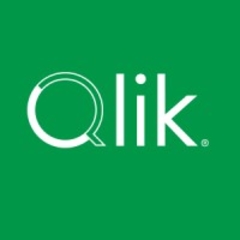



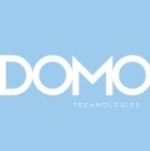



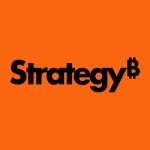
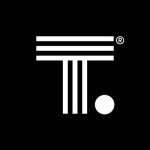


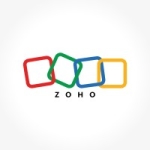


Here are some other drawbacks of Qlikview
• Qlickview doesn’t offer multi user development environment means multiple developers can’t work on a single project.
• You can’t see the SQL generated behind a query.
• It has no graphical user interface available for creating users, roles and privileges.